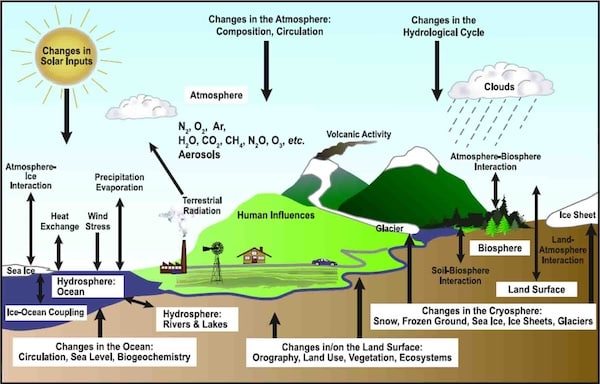It was clear during the U.S. presidential election campaign that if re-elected Donald Trump would be no friend to the environment. The assault on climate science and action began immediately. At the time of writing, a spate of executive orders and political appointments are disrupting and dismantling progress across the climate and environmental science community.
Federal agencies, like the U.S. Department of Agriculture, have taken down web pages that reference climate change and paused farm payments for wildlife conservation and climate change adaptation. This move will leave farmers more vulnerable to climate change. The removal of information from the U.S. Forest Service website could hinder preparedness for future wildfires in the wake of the devastating California wildfires, which were exacerbated by climate change.
The new head of the Environmental Protection Agency, Lee Zeldin, has downplayed the urgency of action on climate change and insisted that U.S. research and policies on climate, fossil fuels, and transport should remove so-called left-wing zealotry and focus on providing cheap energy for American households and achieving American energy dominance. This outlook ignores the fact that the impacts of climate change are projected to cost a great deal more—in monetary and health terms—than adaptation and mitigation measures, and that the worst-off in American society are the most vulnerable to environmental change. Who within society shoulders the cost of energy transitions is a matter of policy, and a just transition that provides health and economic benefits, especially for those most pressed by the cost of living crisis, is possible.
The Trump administration aims to grow natural resource extraction in the U.S. and seems eager to undermine scientific evidence and legal protections to achieve this. President Trump has declared a national energy emergency and encouraged the expansion of drilling for oil and gas. Separate orders aim to facilitate drilling and logging projects in important wilderness areas in the American Arctic region and in national forests. These actions have been coupled with a temporary halt to ground leases for offshore wind farm developments and federal funding for onshore wind.
Trump and political allies have raised unevidenced concerns about the ecological impact of wind farms. However, in a genuine potential blow to the protection of American biodiversity, the U.S.’ first National Nature Assessment has reportedly been cancelled. The previous administration had set its own ambition to conserve 30% of national biodiversity; a goal that seems unlikely to survive.
An executive order banning diversity, equity, and inclusion activities has suspended all federal jobs and programmes related to environmental justice, which were designed to protect poorer communities from environmental health impacts of new extractive or industrial developments. This and a further order on so-called gender ideology extremism have led to the mass erasure of information relating to sexual or gender diversity from the websites of vital federal agencies like the CDC, a temporary ban on communications with external bodies, and an alleged instruction to retract accepted scientific publications covered by the gender ideology ban. The suppression of scientific terms related to the environment and to sexuality or gender is a chilling and ironic curtailment of free speech by politicians that proport to be its champions.
President Trump has ordered a U.S. withdrawal from the Paris Climate Agreement and stopped all climate aid to foreign countries. The Paris Agreement is the best framework we currently have to reduce global greenhouse gas emissions that scientific consensus agrees are necessary to avoid the worst impacts of climate change. The U.S. is not the World, but it is one of the biggest polluters, most powerful nations, and largest contributors to scientific research; its politics have a tremendous influence on the global approach to climate change.
Whether these early dramatic actions in Trump’s presidency withstand legal and political challenges, they signal a willingness to override scientific evidence. Amongst this turbulence, it is vital that researchers, regional and local actors, the private sector, uphold and follow the evidence on climate and environmental change and be clear: hiding from the reality of climate change will only harm Americans and the wider world.

